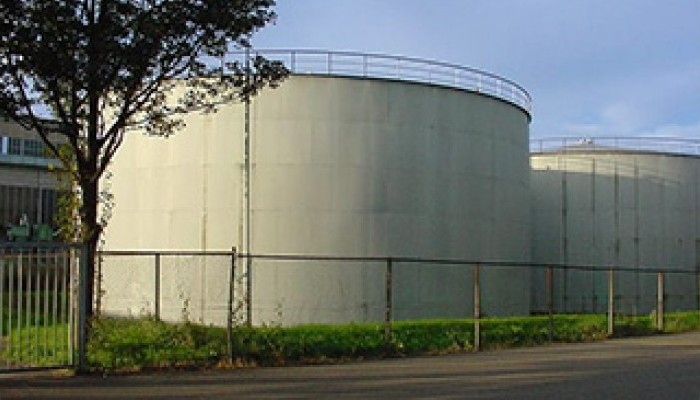This collaboration shows how two completely different factories can combine their waste water in a smart way to come up with ideal solutions. It is ideal for the participants, Sappi and BASF, as well as for the environment. The collaboration was recently renewed for another ten years.
The principle is simple. The paper manufacturer Sappi takes water from the Meuse river in Maastricht. This water is treated so it can be used as process water in the Sappi factory. In addition, a portion of the treated water is used as process water by three companies on the grounds of BASF – BASF, DCC, and IMEX – a kilometre away. The waste water from these companies is sent back to Sappi's waste water treatment system. Sappi uses the waste water from DCC, which is rich in nitrates, to treat its own waste water, which then gets returned to the Meuse. The system was set up over ten years ago by e-Water Group, which is now called Evilim. Evilim is still the project owner and is responsible for management and maintenance.
Cheaper and cleaner
What are the benefits of this collaboration? ‘The waste water from Sappi is full of organic substances,’ says the utilities supervisor Bas Eyck. ‘We treat the water in a natural, biological way, using billions of bacteria which we provide with oxygen. That used to involve injecting pure oxygen into the waste water, which was costly – and dangerous. Instead, we now use nitrate (NO3) which is taken from the waste water from the BASF premises. The bacteria convert the nitrate into nitrogen, by a process of denitrification. The oxygen is used up in the processing of organic materials. That way, both the nitrate and the organic materials are broken down in an environmentally-friendly way, without the need to inject oxygen. We process any excess nitrogen in an SBR reactor. To maintain the right balance, we add sugar water from confectionery factories, for instance. The water that is returned to the Meuse after treatment is cleaner than the water taken from the Meuse at the start of the process.’
Environmental benefits
There were other reasons why BASF took part in and continues to take part in this project by Evilim, reveals the Environment and Health Manager Bert Kuijpers. ‘This project was launched by CIBA Specialty Chemicals, which manufactures pigments and was acquired by BASF. CIBA derived the process water from groundwater but was explicitly requested to find other sources in order to avoid drying out the environment. There was also the prospect of a tax on the use of groundwater. The water taken from the Meuse and treated at Sappi was a cheaper alternative at the time. Furthermore, thanks to the collaboration, there is no need for BASF/DCC to build an expensive waste water treatment facility. The waste water used to be discharged into the Zuid-Willemsvaart, which the city of Rotterdam uses as a source of drinking water. However, nitrate is a limiting factor.’
Eyck and Kuijpers conclude that their collaboration with Evilim is good for Sappi, BASF, and the environment. ‘So it's a win-win-win situation. It also sets an example that is worth repeating at other companies.’





